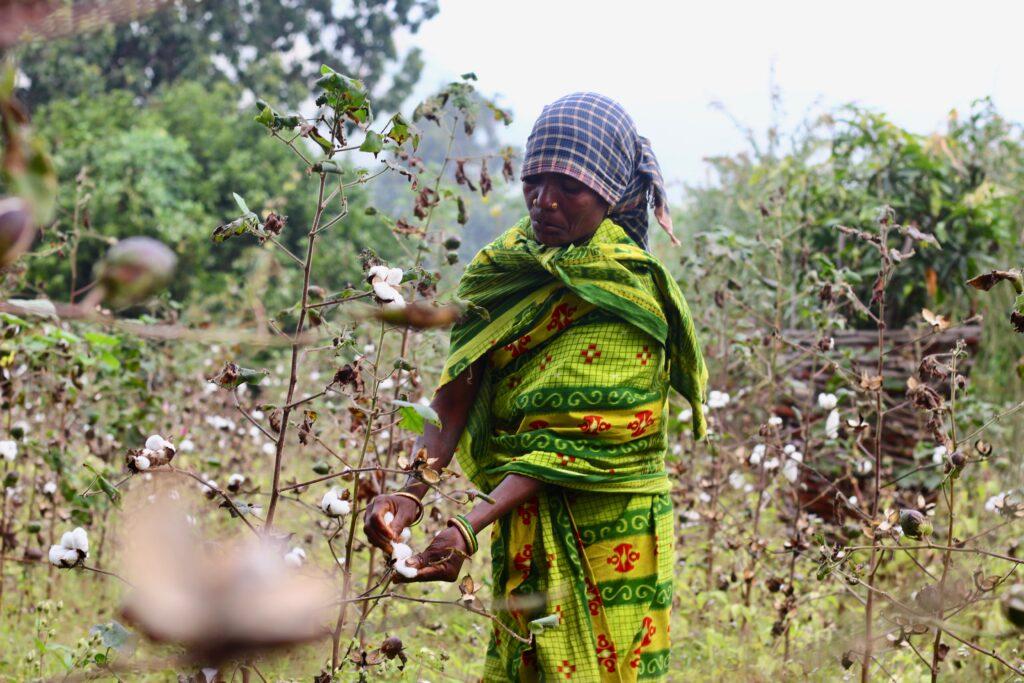Who’s got the power? – Tackling Imbalances in Agricultural Supply Chains
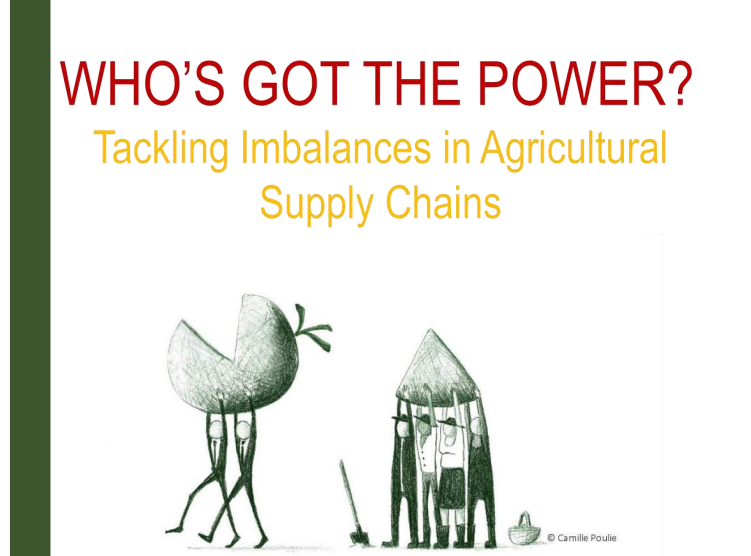
Over recent decades, the growth of supermarket chains, the increase in the number of processed food products they sell and the consolidation of retail, processing, logistics’ chains and other related industries (seeds and chemicals), have led to the emergence of new procurement practices.
Supply chains sourcing agricultural products have become more global and tightly coordinated. Lead buyer requirements and standards have led to the restructuring of the chains, favouring medium-sized and large producers and exporters that can more easily meet their demands.
The focus has switched from what the supplier can offer to what the buyer requires. Farmers no longer produce first and then look for a market. Instead, those who control supply chains decide what they believe the consumer needs, and then design the supply chains required to deliver those products.
The benefits that accrue to actors of global supply chains are skewed in favour of the lead firms in the chain. Value is increasingly allocated not primarily to those who supply a physical product but to those who can bring to bear the information needed to make the global food chain work successfully.
Although the chain as a whole is quite profitable, the terms of trade for smaller producers have declined, in the Global South as well as in Europe; the gap between producer prices and retail prices has grown; workers’ conditions have degraded; and smaller-scale farmers are finding themselves increasingly excluded from higher-value markets.
These trends are accelerating transformations in rural societies and the way rural people are making a living: restructuring of agrifood and land markets, rural exodus, labour shortages… These developments are also associated with growing environmental burdens that undermine the sustainability of food production in many regions, because of land and water scarcity and climate-change yield losses.
In this context, the Fair Trade movement has commissioned this study to explore and analyse the issue of power concentration in agricultural chains: What is the relationship between buyer power and unfair trading practices (UTPs)? What are the impacts on small farmers, workers and the environment? How can legal systems regulate buyer power effectively?
More From The Workstream
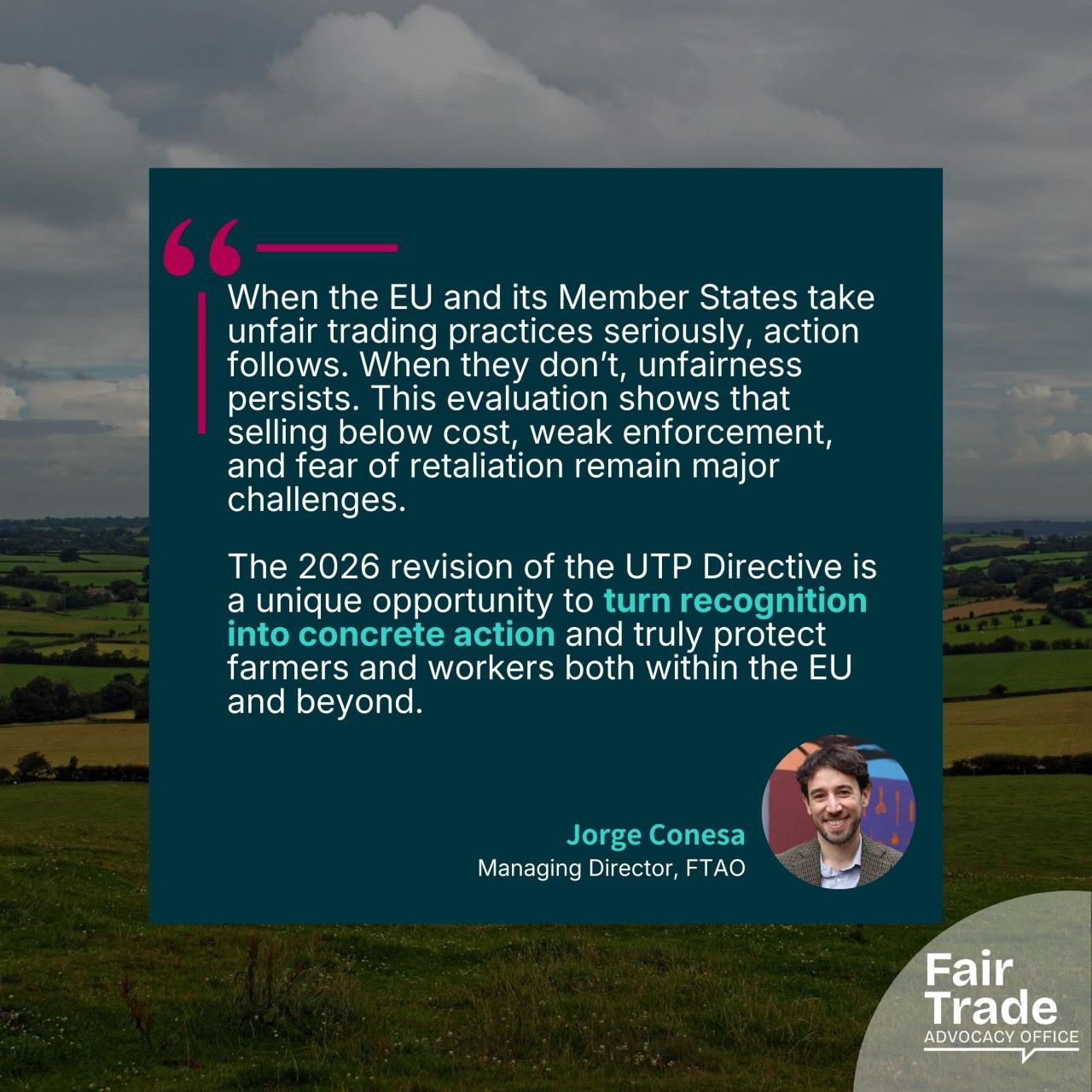
The FTAO acknowledges the EC's evaluation of the Directive on Unfair Trading Practices and welcomes its analysis aimed at closing the remaining gaps
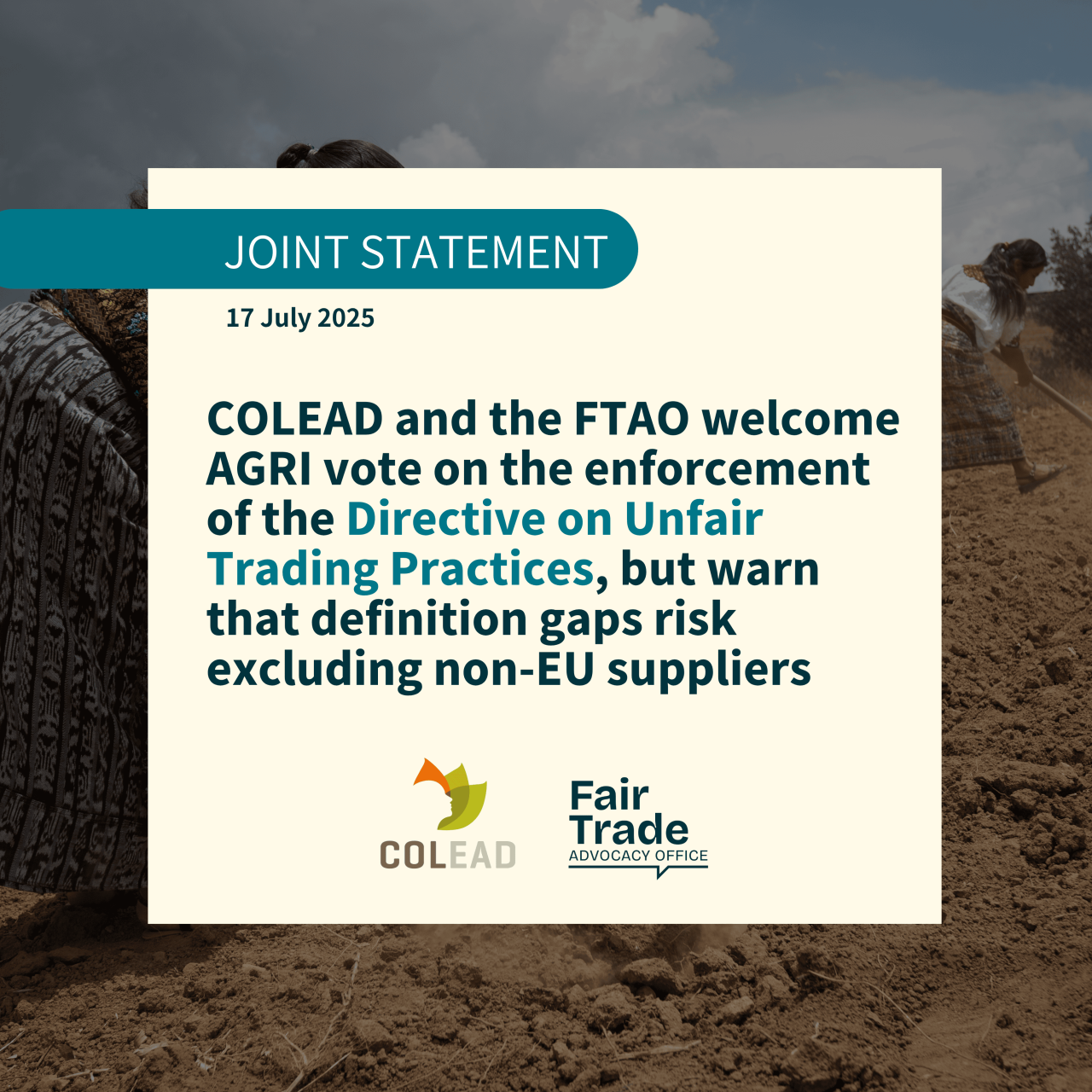
COLEAD and the FTAO welcome AGRI vote on the enforcement of the Directive on Unfair Trading Practices, but warn that definition gaps risk excluding non-EU suppliers
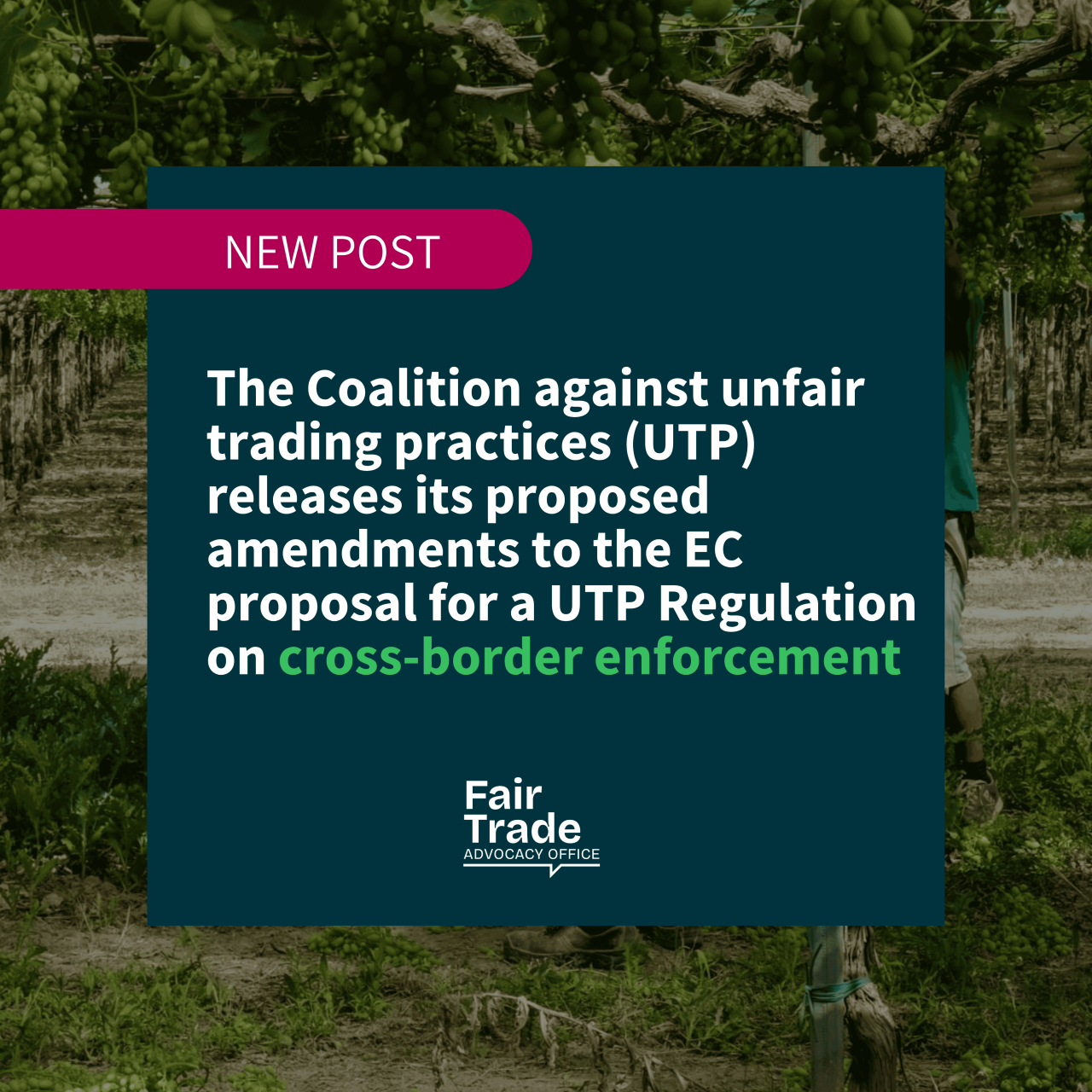
UTP Coalition releases proposed amendments to the proposal for a UTP Regulation on cross-border enforcement
